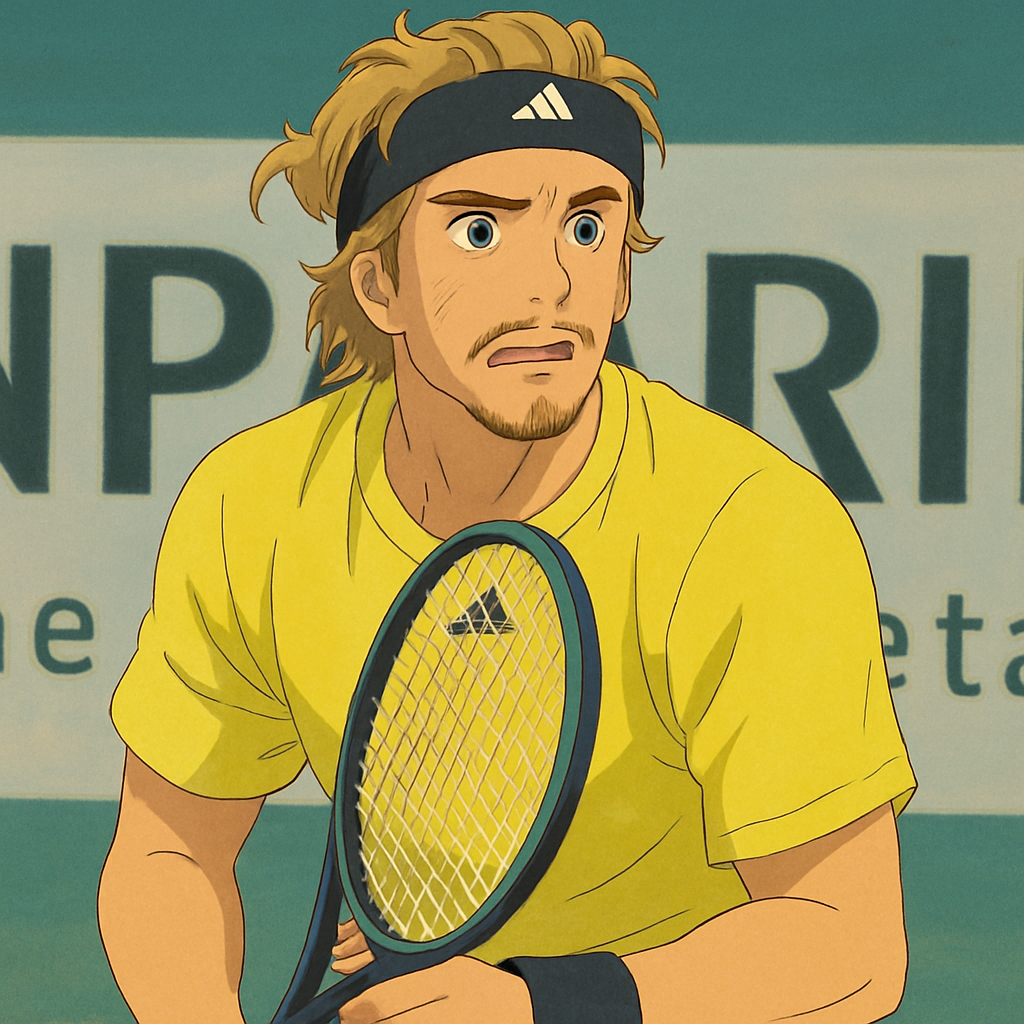PARIS — Alexander Zverev’s French Open campaign ended in disappointment after a straight-sets defeat to Novak Djokovic in the quarter-finals, reigniting debates about his coaching setup and family involvement in his career. The German star, once tipped as a future Grand Slam champion, has faced mounting criticism over his reliance on his father, Alexander Zverev Sr., and brother, Mischa Zverev, as his primary coaches.
The 27-year-old’s 6-4, 6-3, 6-0 loss to Djokovic marked another missed opportunity at Roland Garros, where he reached the semi-finals in 2021 and 2022. Tennis analysts and former players have now urged Zverev to reconsider his coaching team, arguing that a more experienced and independent voice could help him break through at the highest level. "The family dynamic is holding him back," said former world No. 4 Brad Gilbert.
Calls for a Coaching Shake-Up
Zverev has long been coached by his father, a former professional player, and his brother, a retired ATP Tour competitor. While the arrangement has yielded success—including an Olympic gold medal and two ATP Finals titles—critics argue that it lacks the tactical depth needed to challenge Djokovic, Rafael Nadal, and Carlos Alcaraz in Grand Slams.
Former French Open champion Mats Wilander was blunt in his assessment: "Zverev needs a fresh perspective. His dad and brother have done a great job, but he’s stuck in a comfort zone. To win majors, he must take a risk and hire a proven coach."
Key Issues Highlighted by Critics
Analysts point to several recurring problems in Zverev’s game that a new coach could address:
- Mental fragility: Zverev has struggled in high-pressure moments, including multiple Grand Slam semi-final losses.
- Tactical predictability: His reliance on a big serve and baseline game has been exposed by elite opponents.
- Lack of adaptability: Djokovic’s ability to adjust mid-match contrasted sharply with Zverev’s rigid approach.
Zverev’s Defiant Response
Despite the criticism, Zverev has defended his family’s role in his career. After the Djokovic defeat, he stated: "My team has brought me to where I am today. I trust them completely. People outside don’t understand our dynamic." However, his recent results—no Grand Slam finals since 2020—have fueled skepticism.
The German’s 2024 season has been inconsistent. While he won the Rome Masters, his Grand Slam performances—a fourth-round exit at the Australian Open and the French Open quarter-final—have fallen short of expectations. His ranking has also slipped to No. 8, his lowest since 2017.
The Djokovic Defeat: A Wake-Up Call?
Zverev’s loss to Djokovic was particularly concerning due to the one-sided nature of the third set. The Serb dominated 6-0, exposing Zverev’s inability to problem-solve under pressure. Tennis commentator Patrick McEnroe noted: "When Djokovic raised his level, Zverev had no answers. That’s where a top coach could make a difference."
Zverev’s serve, usually a weapon, faltered with a first-serve percentage of just 58%. His unforced error count (32) dwarfed Djokovic’s (14), highlighting his struggles with consistency. The match reinforced the perception that Zverev’s game lacks the refinement needed to win a major.
What’s Next for Zverev?
With Wimbledon and the US Open approaching, Zverev faces a critical juncture. Former coach Juan Carlos Ferrero, who worked with him briefly in 2017, believes change is necessary: "Alexander has all the tools, but sometimes you need an outsider to unlock them. Family support is great, but objectivity is key at this level."
Potential coaching candidates include:
- Ivan Lendl: Known for transforming Andy Murray into a Grand Slam champion.
- Goran Ivanišević: Helped Djokovic refine his serve and mental toughness.
- Darren Cahill: Guided Simona Halep to major success.
Zverev’s next move could define his career. As six-time Grand Slam champion Boris Becker warned: "If he doesn’t evolve, he risks becoming another ‘nearly man’ of tennis." With mounting pressure and a ticking clock, the German must decide whether loyalty or ambition will guide his next steps.

